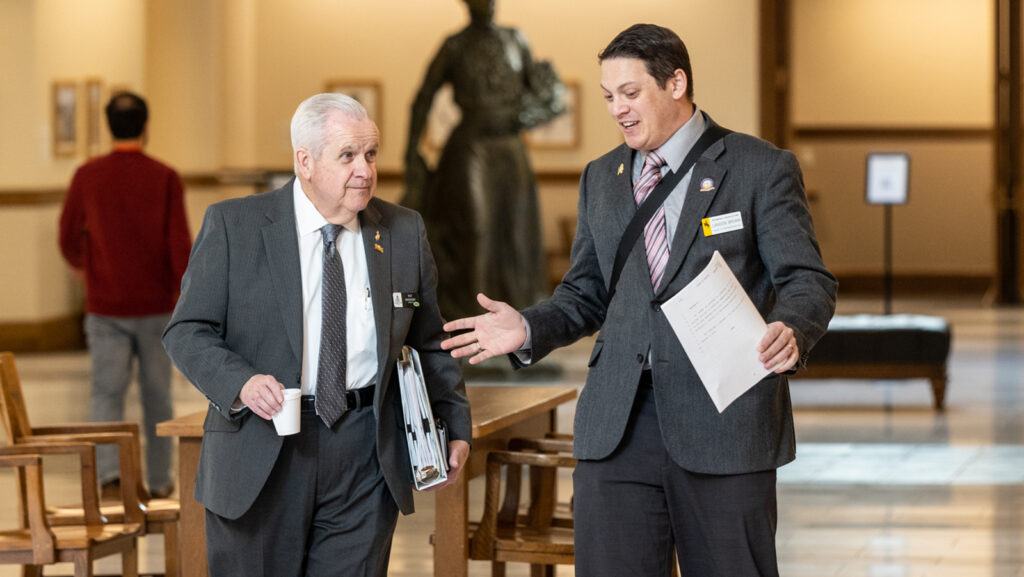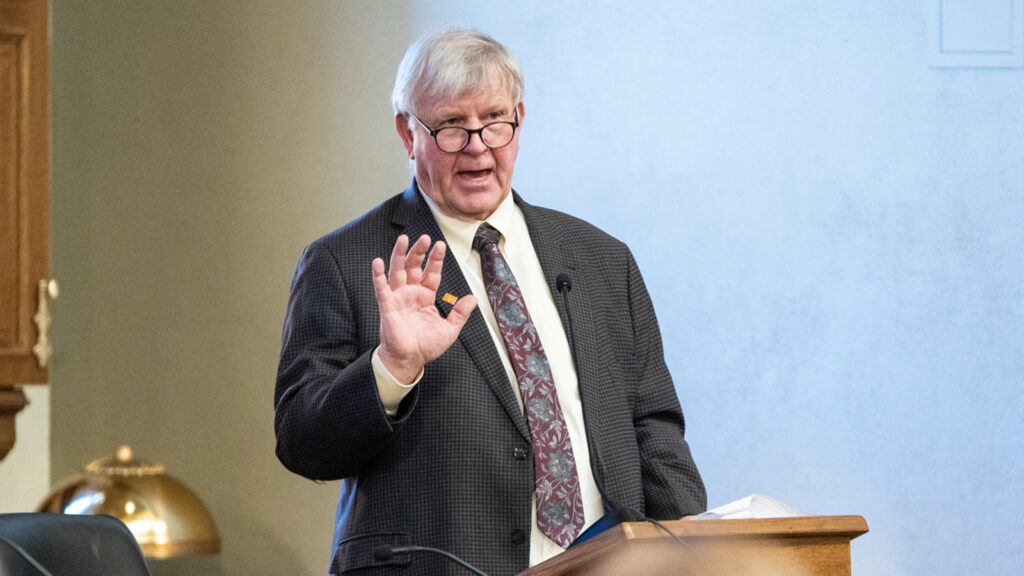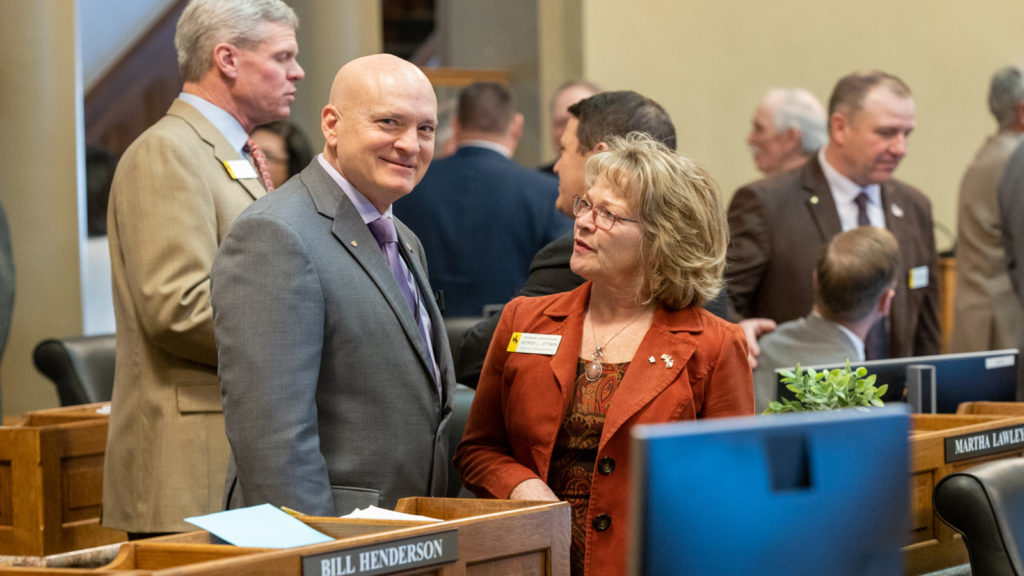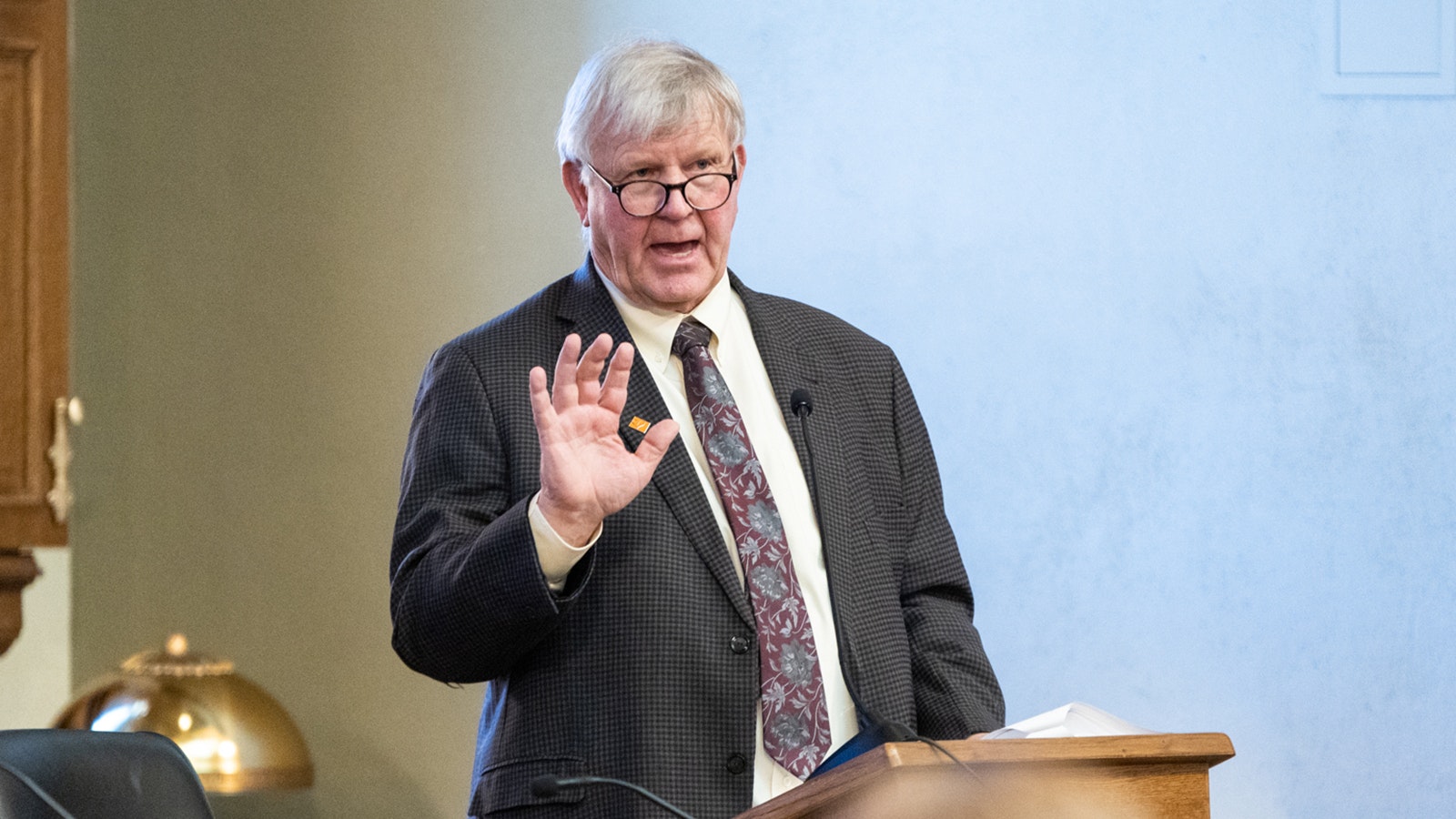Numerous bills related to mental health are sifting through the Wyoming Legislature with ease, though lawmakers sometimes disagree over how to pay for them.
$65 million
The Wyoming mental health professional community has identified about $9.5 million in state funding requests to achieve its most hoped-for law changes for the next year, plus another $7.6 million for fiscal year 2025, $2 million for fiscal year 2026 and assorted requests for federal money.
At first, the Wyoming Association of Mental Health and Substance Abuse Centers (WAMHSAC) was eyeing a much larger amount to cover various mental health law changes now proposed for Wyoming.
That’s because in House Bill 65, legislators originally planned to include another $46 million in a trust fund to keep the state’s 988 suicide hotline running into the foreseeable future.
The hotline costs about $1.5 million a year.
But the state House of Representatives pulled the perpetual funding cache from the hotline bill, directing the agency to request money every biennium instead, as other state-funded public health programs do.

Because, Transparency
State Rep. Landon Brown, R-Cheyenne, told Cowboy State Daily he led the movement not to fund the $46 million trust because he wants the hotline to be subject to a transparent budgeting process.
“The department will come in and say, ‘This is how much it costs to run the program,’” each biennium, said Brown. “It’s a much more transparent process.”
Brown also said he hopes lawmakers can look at state suicide figures to determine whether the hotline is working, but he sees the data as difficult to analyze in a budgetary conversation.
“You can’t tell how many people didn’t commit suicide,” said Brown. “But we can determine a declination of suicides from year to year if the program is stood up and operates the way it should.”
That Ship Has Sailed
Andi Summerville, executive director for WAMHSAC, told Cowboy State Daily she’s hopeful the state Senate will put the $46 million trust fund back onto HB 65 for the 988 program.
But Sen. Cale Case, R-Lander, said he doubts the Senate would do that, telling Cowboy State Daily, “That ship has sailed.”
However, Wyoming can afford to grant the remaining $19.1 million included in other legislation through 2026 to address the industry’s most favored mental health law changes, Case said. But that will depend on lawmakers’ attitudes toward each bill.
And there are several of them.
“The whole thing feels so fragmented,” said Case. “I’m always skeptical, but on the other hand we have some meltdowns happening.”
Case pointed to rising rates of homelessness in Wyoming’s cities and the state’s 2020 suicide rates, which were the highest per capita in the nation.
Though he considers himself an unofficial Libertarian, Case said suicide prevention is one area where he supports government intervention.
“Suicide … is a nuclear blast. It’s a wrecking ball,” said Case. “It just creates permanent harm to so many people.
“I think we do have an obligation to do something about it.”

And Yet
Many bills addressing mental health issues have crossed chambers with relative ease this legislative session.
A bill making a competitive grant for schools to fund extra counseling services for teachers and students has passed the state House of Representatives and now faces the Senate.
Other House bills addressing mental health issues also have vaulted from House to Senate, including:
• House Bill 81, which would let hospitals use their private money to enhance the state’s Medicaid buy-in and get more federal match money.
• House Bill 82, which would allow outpatient mental health evaluations for inmates charged with misdemeanors and implicated as mentally ill.
• House Bill 111, making it a felony to expose kids to fentanyl.
• House Bill 127, requiring health care facilities to let clergy visit patients during a pandemic.
Bills addressing mental health originating in the Senate also have jumped chambers, including:
• Senate File 10, making an interstate compact to employ licensed professional counselors from other states in Wyoming.
• Senate File 23, which would transfer about $6.7 million from the Wyoming Department of Health into the judicial branch for drug treatment programs.
• Senate File 79, requiring health care providers to send a plan of safe care home with families whose newborns have endured fetal alcohol or drug exposure.
• Senate File 112, making peer support counseling confidential.
The key bills making up WAMHSAC’s $19.1 million request include the supplemental payment program, allocations of drug-treatment funding into the courts, the school counselor grant program and the newborn safe care plans mentioned above. They also include an insurance-company change allowing doctors across fields to collaborate, an extension of Medicaid for post-partum mothers, and a suicide prevention effort in schools.
Shifting Attitudes
Rep. Lloyd Larsen, R-Lander, told Cowboy State Daily that state lawmakers seem warmer toward mental health strategies than in sessions past.
He attributes the shift to public pressure.
“Every legislator is hearing from their constituents over concerns in their communities, I think, of people who are being challenged with mental health issues,” said Larsen. “And the lack of resources to help them address those challenges or to get the help they need.”
Larsen said some of it boils down to money, but some entails strategy: coordinating with the private sector and finding ways to maximize federal funds efficiency.
Larsen also said it’s also up to legislators to determine to what extent the state should be involved in mental health treatment.
“The state has been actively engaged in addressing mental health, but to do that you have to define what the state’s role is,” said Larsen. “Do you just say to the whole state, ‘Come and we’ll provide mental health?’
“You can’t do that. We don’t have the resources to do that.”
One of the needs Larsen said he’s identified in his years working with health statutes is that Wyoming has decent programs for adults but often struggles to place adolescents who need mental help.

Government ‘Expansive’
Rep. John Bear, R-Gillette, said Wyoming has an obligation to take care of its people in crisis, as it does with the Title 25 mental health statute giving the state temporary – and sometimes permanent – custody over people whose mental illness makes them dangerous to themselves or others.
But Bear said he’d like to see a fiscally conservative approach to additional mental health programming.
“I think government has grown too expansive, and in particular the (Wyoming) Department of Health,” said Bear.
The Largest Agency Budget
The Wyoming Department of Health has the largest budget of any state agency with about $2 billion a year in operating costs, a figure comprised of both state and federal money with each making up roughly half of the total.
Larsen, told the state House during a supplemental budget presentation Monday that just more than 90% of the agency’s budget goes directly to Wyomingites in the form of services.
The agency oversees state Medicaid funding, programs for public, behavioral and ageing health needs; the state hospital for people with dangerous mental illnesses; and other facilities for people with developmental and other issues.
The health department cut roughly $112 million of its budget during the early stages of the pandemic, according to WDH spokeswoman Kim Deti.
Six positions also were cut during that round, she said. Since then, the Legislature has restored some funding to the agency’s budget.
“The heavy majority of our positions are direct patient care jobs,” said Deti. “Ensuring that care for vulnerable residents and clients in (care) facilities or for those who rely on field positions for services was clearly a priority (during the cuts).”
Causation?
While Wyoming tops the nation for suicide rates currently, it also has been among the highest rates for suicidality for a decade.
Bear said the government can help people but can’t fix everything. And help doesn’t always look like mental health programming, he said, adding that the federal government also has a role to play.
Lower taxes, fewer business regulations and other economic boons tend to raise morale across the country, Bear said.
“When the government creates a miserable existence by overtaxing, creating inflation, printing money – you create a situation where people are going to feel hopeless,” said Bear.
Government’s first objective, he said, is to create a strong economy.
But, he added, “I am not a proponent of taking all mental health (services away) and trying to privatize that.”
Who’s Going To Pay?
After Brown proposed the House amendment pulling the $46 million trust fund from the suicide hotline, he later proposed another amendment restoring the trust fund to the hotline – with no money in it.
He said he was urged by residents and other legislators to restore the trust fund so that philanthropists would have an avenue to donate directly to the cause if they wish to.
Brown said he did not have any specific philanthropists in mind.
He said Rep. Steve Harshman, R-Casper, urged him to restore the trust fund for possible philanthropy.
Harshman did not respond to a Cowboy State Daily text requesting comment.
During his State of the State address Jan. 2, Gov. Mark Gordon singled out Molly Hughes, director of the Hughes Charitable Foundation, as a supporter of 300 organizations across Wyoming in 2022 alone and “the principal mover” in the governor’s mental health summit last fall.
“She understands government can’t solve the problems all on its own,” said Gordon. “It takes good people stepping forward.”
Gordon thanked Hughes and “all the private sector and nonprofit entities that give back.”
Big Bite
Despite the nod to Hughes and others, all lawmakers interviewed by Cowboy State Daily on the topic said they are not expecting philanthropy to address the state’s mental health goals.
Hughes at the mental health summit said philanthropy can feel like a “Band-Aid.”
“We can’t solve this by ourselves,” she said. “It’s going to take big and small efforts from each of us, from elected decision-makers who have the reins to bigger funds … to the guy at the Loaf ‘N Jug. We all need to scale up our systems of care and take care of each other.”
Hughes said she hoped to see the Legislature “take a big bite” of the issue, adding that philanthropy may be able to match it.
Editor’s note: Hughes Charitable Foundation Director Molly Hughes is the wife of Cowboy State Daily majority owner B. Wayne Hughes, Jr..





